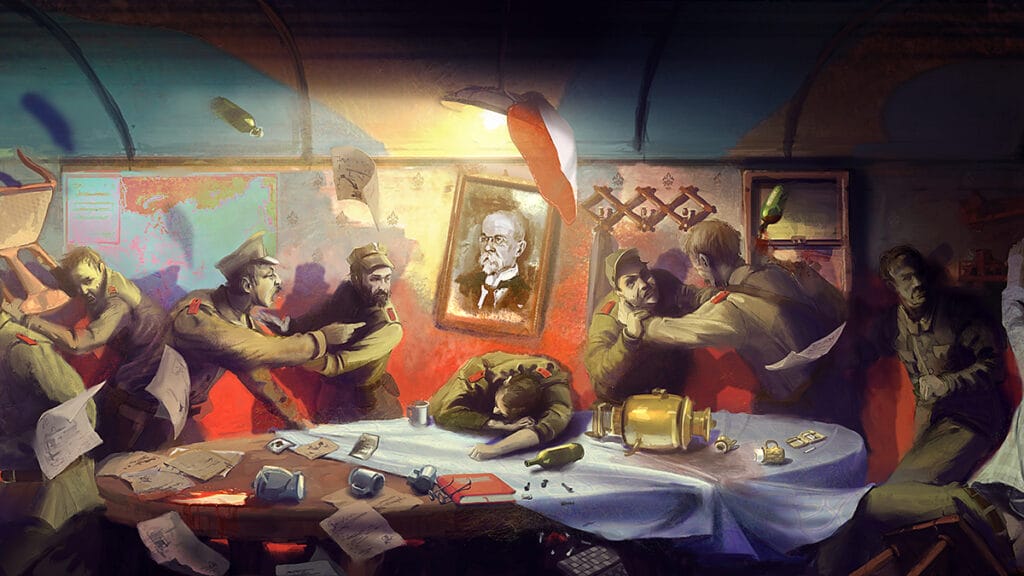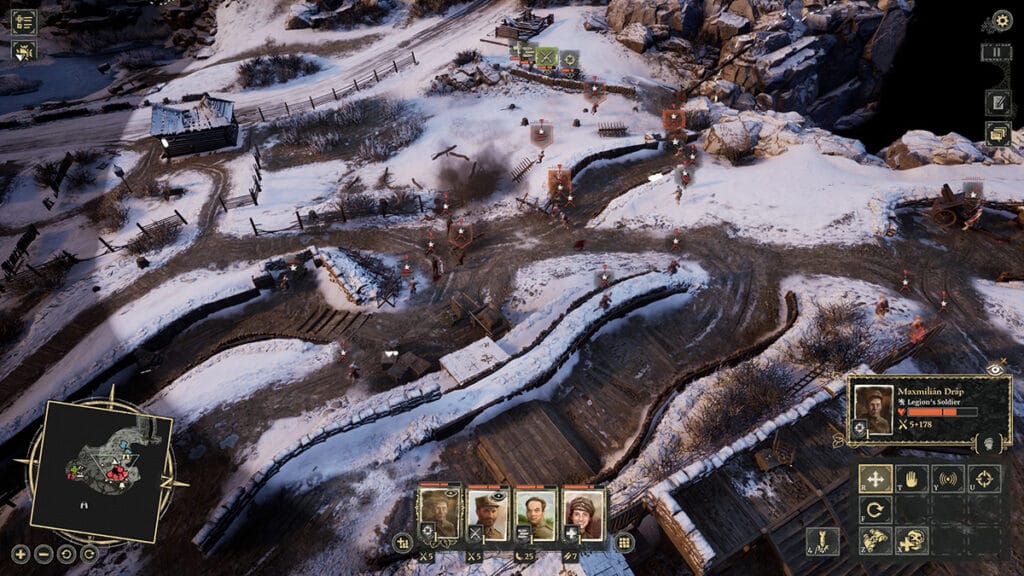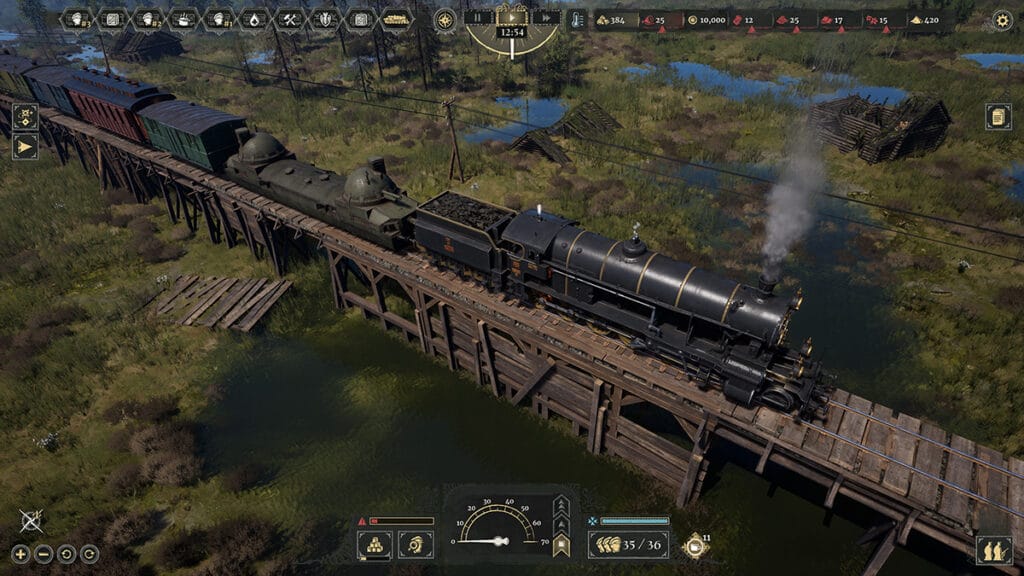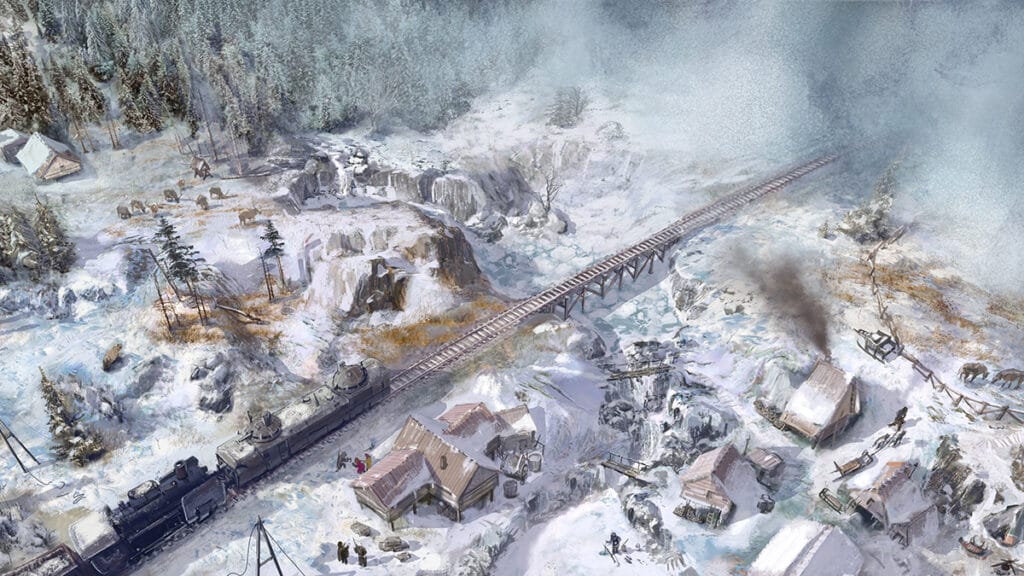Skip To...
In some ways, it can feel like every major event from World War 1 has been sufficiently exhausted. The “War to End All Wars” has been covered at length across movies like All Quiet On The Western Front and Johnny Got His Gun, or games like Battlefield 1 and Valiant Hearts. It was, as the name suggests, a massive war spanning dozens of countries, and some stories have inevitably flown under the radar on the world stage. Last Train Home is one of those stories, and this game proves that these tales shouldn’t be lost to history.
Story
It’s the end of World War 1 and Czechoslovakia has finally gained its independence from the crumbling Austro-Hungarian Empire. The leader of the newly formed state, Tomaš Masaryk, sent a legion of soldiers to support Russia’s White Army during its ongoing civil war, but the Russian monarchy was losing and the soldiers wanted to return home. West was the closest way back to Czechoslovakia, but the Bolsheviks controlled those borders, and they were certain they’d be killed if they traveled that way. With no other choice, they went east by train to try and reach the Russian coastal city of Vladivostok and get a boat to sail back across the world to their homeland.
In actual history, the Czechoslovak legion accomplishes this, and it’s one of the most legendary stories from the early days of the nation that is now both Czechia and Slovakia. In the game, however, the player is given the reigns and it’s up to them whether or not the legion makes it home and how quickly. This is a game where all your decisions will affect the outcome, and the entire legion can be lost if things are mismanaged. To add to this tension, Last Train Home only lets the player keep a single save file, so there is a real weight to every long-term decision the player makes.
This is ultimately a historical fiction based on true events, but the game does a fine job of making the moments feel realistic. Players looking for a grounded World War 1 tale won’t find much in Last Train Home that veers too histrionic or exaggerated. That can also make some narrative periods of the game a bit of a slog, but since the player is given plenty of control regarding the pacing of the game, how much of this needs to be tolerated is more or less up to the individual.
Gameplay
Players familiar with the Total War series will be able to recognize the overarching gameplay loop going on in Last Train Home. It divides its time between RTS battles with various objectives and an overworld section that mostly involves maintaining the train, traveling along the route, progressing the story, and managing the various characters.
There are several difficulty modes provided to allow players to tailor the experience around how much story, battling, and crew maintenance is offered, which is great because it allows players to fully customize the experience to their tastes.
When getting down into the nitty-gritty of what’s going on with the RTS battles and crew management system, there isn’t much here that players familiar with this genre haven’t seen before. There are soldiers of various roles and specialties that need to be maintained and upgraded off the battlefield, and there is also a permadeath feature so keeping up with the player’s preferred characters is a must.
Graphics & Audio
Ashborne Games, the team behind Last Train Home, is a small development studio in the Czech Republic, so it’s not so surprising that the game isn’t on the cutting edge graphically speaking, but players interested in this type of title generally aren’t looking for that anyway. Graphically, the game is serviceable and the art style does its job of capturing the feeling of gradually progressing through a wild, rural, and oftentimes hostile environment in Central and Eastern Russia. It’s certainly not a selling point for the game but it works in a utilitarian sense.
There is an English audio setting in the game for those who may be bothered by reading subtitles for an entire game/can’t speak Czech or Slovak, but there is also an immersive audio setting where soldiers speak the languages that they really would have spoken at the time, meaning a mix of primarily Czech, but also with some Slovak and Russian naturally spoken by the enemy forces. This review is written having played with the immersive audio settings active, so the English dubbing can’t be commented on here, but the subtitles are great with no noticeable translation issues or awkward diction, so it’s a recommended play style. Pojd’me.
Conclusion
Anyone interested in the history of the World Wars will likely be fascinated by Last Train Home. It’s an amazing story and a surprisingly underutilized one considering how fantastical it is even when stripping away some of the aggrandized elements put in this game’s depiction specifically.
For RTS players looking for their next fix, this is a solid recommendation. It certainly doesn’t reinvent the wheel, but it can serviceably live up to expectations and it does manage to feel unique in certain ways, even if many of those ways are purely superficial. It certainly lays a foundation that Ashborne will hopefully be building on in the future, whether with further detailed RTS or more fascinating Czechoslovak tales that the world needs to know.











